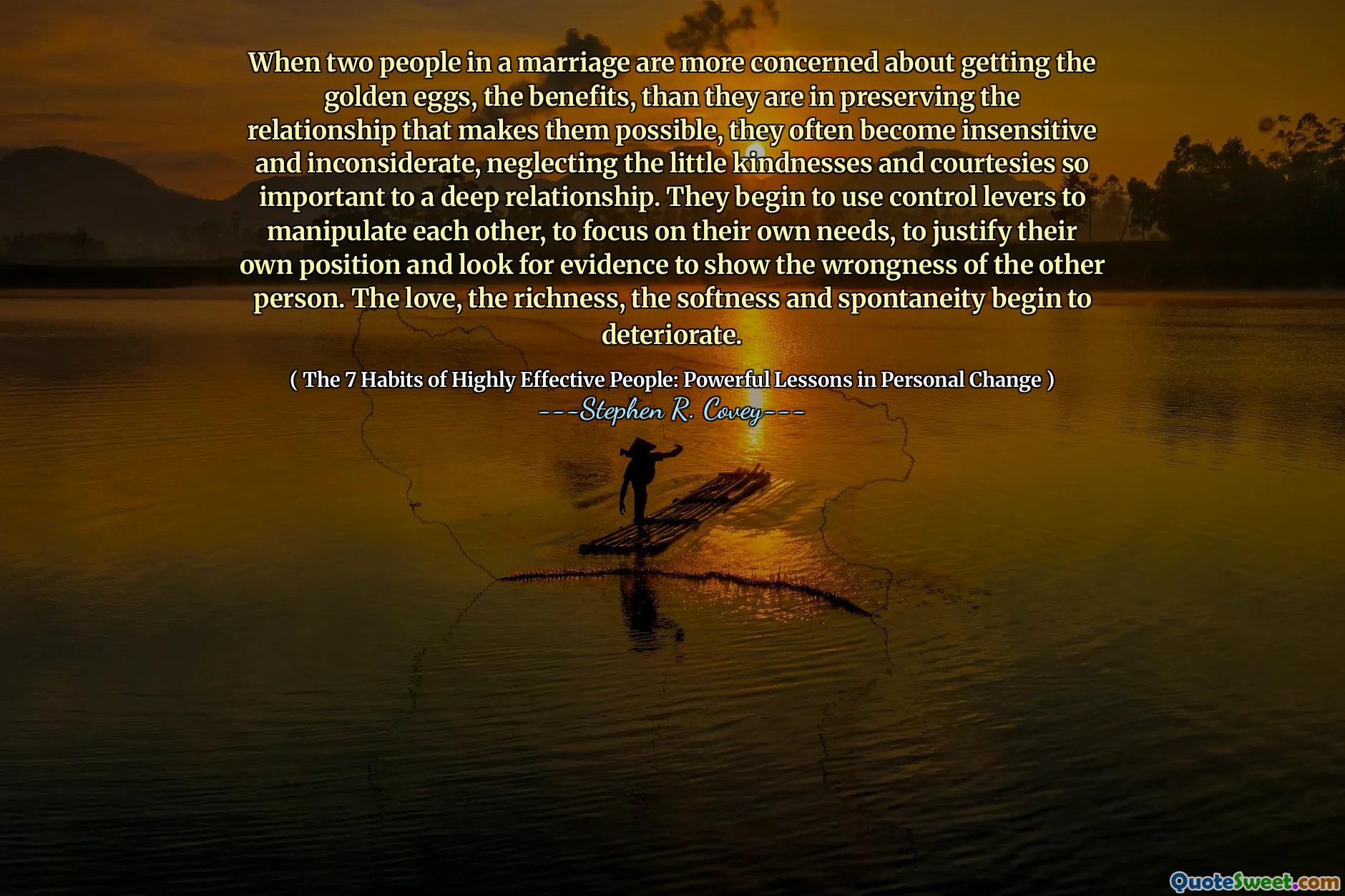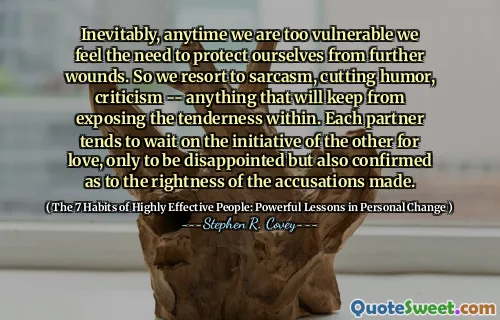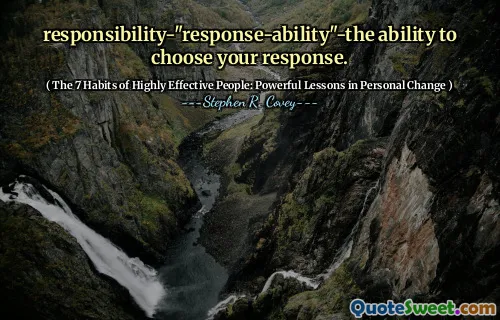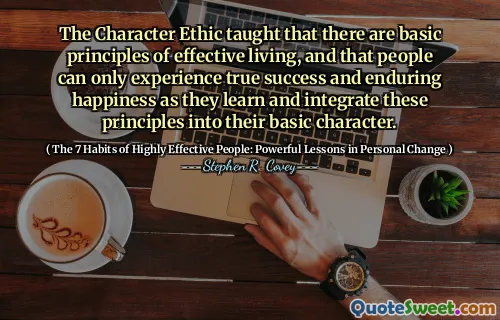
When two people in a marriage are more concerned about getting the golden eggs, the benefits, than they are in preserving the relationship that makes them possible, they often become insensitive and inconsiderate, neglecting the little kindnesses and courtesies so important to a deep relationship. They begin to use control levers to manipulate each other, to focus on their own needs, to justify their own position and look for evidence to show the wrongness of the other person. The love, the richness, the softness and spontaneity begin to deteriorate.
This quote from Stephen R. Covey's "The 7 Habits of Highly Effective People" offers a profound insight into the delicate balance required to sustain meaningful relationships, particularly in marriage. The metaphor of "golden eggs" aptly represents the tangible benefits or outputs of the relationship—such as comfort, security, and shared achievements—that often capture our attention. However, Covey warns that an excessive focus on these benefits at the expense of nurturing the relationship itself leads to insensitivity and neglect of the small but vital acts of kindness and consideration. These small gestures are the glue that holds relationships together over time, and once they wane, the relationship begins to erode.
More significantly, the passage highlights how the dynamic shifts when partners prioritize their individual needs and seek to control or manipulate one another. This shift fosters conflict, justify defensive postures, and erodes the mutual respect necessary for love to thrive. The imagery of love losing its richness, softness, and spontaneity captures the quiet tragedy that results when a relationship becomes transactional rather than truly connected. Covey’s insights implore us to consciously invest in the "relationship bank account"—the ongoing nurturing and care—rather than merely expecting returns. In doing so, we honor not only the benefits but the very source that generates them: the living, evolving human connection.









